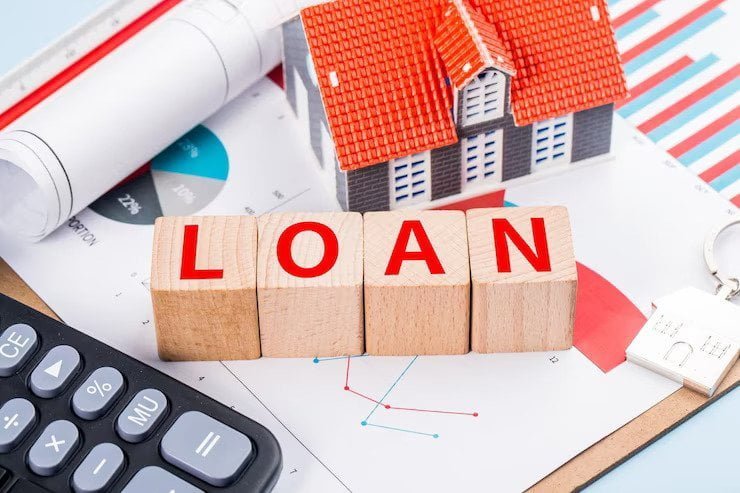What Is A Conventional Loan?
by Arnab Dey Loans & Credit 02 March 2023

If you are beginning the process of buying a home, you may be overwhelmed by all the different types of loans available.
You may have heard about government-backed options like FHA or VA loans but wonder how these differ from conventional loans. The primary difference is that a conventional loan does not receive any backing from the federal government.
While many other types of loans do, conventional loans are not insured/guaranteed by the federal government at all. As such, conventional loans have a more stringent qualification process. However, if you qualify, they offer many attractive benefits.
Read on to learn more about conventional loans, so you can determine if this type of mortgage could be right for you!
How Does It Work?
As was aforementioned, conventional loans are different from other loans in that they do not receive any backing from the government. Rather, other financial institutions like banks or credit unions are responsible for providing the funding for these types of loans.
Due to this, the qualifications for approval on a conventional loan are often stricter than those associated with government-backed loans, making this type of loan unsuitable for some clients.
Conforming Vs. Nonconforming Conventional Loan

Conventional loans are considered to be conforming or nonconforming. Conforming conventional loans are those that meet the criteria set forth by Fannie Mae and Freddie Mac, government-sponsored enterprises (GSEs) that buy mortgage loans from lenders.
These loans must adhere to certain guidelines which include a maximum loan amount, credit score requirements, and debt-to-income ratio guidelines. Nonconforming loans, on the other hand, do not meet these GSE guidelines and as such have higher interest rates and stricter qualification requirements. Thus, depending on the situation, some clients will be a better fit for one type or the other.
What Qualifications Will I Have To Meet To Be Approved For A Conventional Loan?
In order to qualify for a conventional loan, you will need to prove your creditworthiness to the lender. This typically includes providing proof of income and employment, as well as asset documents. Additionally, you will need to have a good credit score. Depending upon the lender, you will need a minimum credit score ranging from 620-660 or possibly even higher.
Additionally, a down payment is usually required for conventional loans. The amount required for the down payment will depend on the type of loan you are applying for and your creditworthiness. Generally speaking, conventional loans require a minimum of 5-20% down.
However, this amount can vary depending on the lender and other factors. It is important to note that if you qualify for a down payment amount of less than 20%, you will likely be required to pay for mortgage insurance, as part of your total monthly mortgage premium.
How Can I Prepare For Taking Out A Conventional Loan?
If you are looking to take a conventional mortgage, start by focusing on getting your financial affairs in order. Be aware of your credit score and take steps to make positive financial decisions to raise it.
Simply put, while you may be approved for a conventional loan with a credit score as low as 620, the higher your credit score, the lower your interest rate will be. Over the course of a 30-year mortgage, a lower interest rate will save you thousands of dollars.
In the same vein, it is helpful to save up substantially for your down payment. While you may be able to qualify for as little as 5 percent down, the more money you have to put down, the better interest rate you will qualify for.
Not to mention, if you are able to save the full 20%, you can avoid the requirement for private mortgage insurance and lower your monthly payment, saving you money every single month.
Lastly, take an honest look at your debt-to-income ratio. If you find that your ratio exceeds 36% of your monthly gross income, take steps to reduce debt prior to applying for a conventional loan.
Lenders will be cautious when reviewing these ratios as they want to ensure that you have the available cash flow to sustain the costs associated with a mortgage and home ownership. Ultimately, the more prepared you are financially the higher the chance of being approved for a conventional loan with a reasonable interest rate.
Why Should I Consider A Conventional Loan?

There are many great benefits to choosing a conventional loan. Consider them below:
1.) Obtain A Larger Loan
Conventional loans offer the potential to borrow a larger amount of money than other types of loans. This means that you can purchase a more expensive home without having to worry about meeting higher qualifications or facing stricter loan limits.
2.) Potentially Lower Interest Rates
The interest rates associated with conventional loans are usually lower than those offered by government-backed options due to the higher credit score requirements. This is especially true if you have a credit score in the mid-700s or above.
3.) Flexibility in Repayment Options
Conventional loans offer a variety of repayment plans that can be tailored to your individual needs. You can choose between different loan terms, interest-only payments, and even adjustable rates. This flexibility makes it easier to find the right plan for your financial situation.
For these reasons, conventional loans are often the preferred choice for most potential homeowners. Ultimately, it is important to understand the qualifications and requirements for this type of loan before committing to it. In the end, the most important thing is that you make the decision that works best for your unique situation.
How Do I Choose A Lender For A Conventional Loan?
When it comes to choosing a lender for a conventional loan, there are several factors to consider. First, you should research different lenders and compare offerings in terms of interest rates, repayment options, fees, and other features.
It is important to find the lender that offers the best combination of these features for your particular situation. Additionally, you should read customer reviews from past borrowers in order to get an understanding of the lender’s customer service.
Lastly, you should ask questions directly to lenders in order to make sure all your needs are met. By doing your research and taking the time to compare lenders, you can be sure that you are making the right decision when it comes to obtaining a conventional loan.
After learning more about conventional loans, could this be the right option for your next mortgage!?
Read Also:







































































































